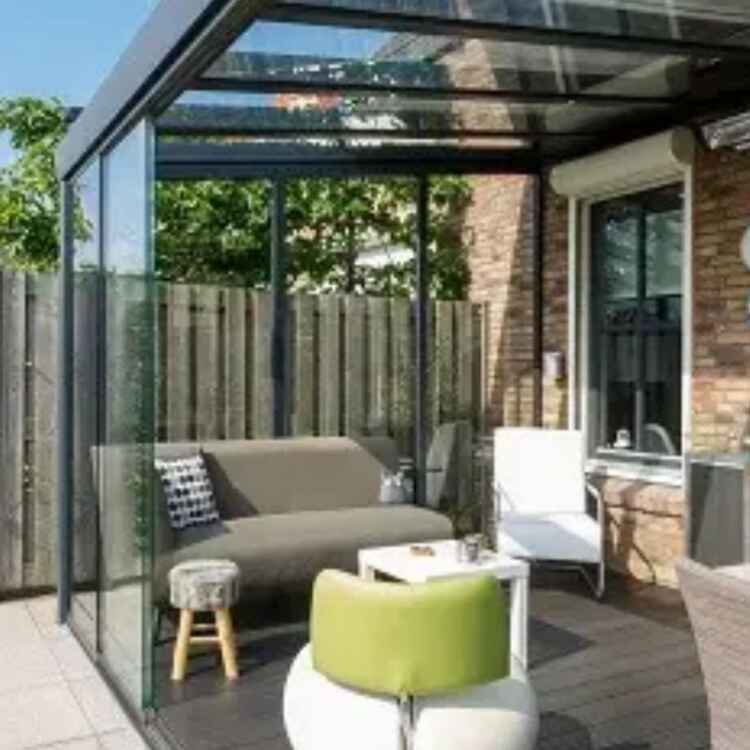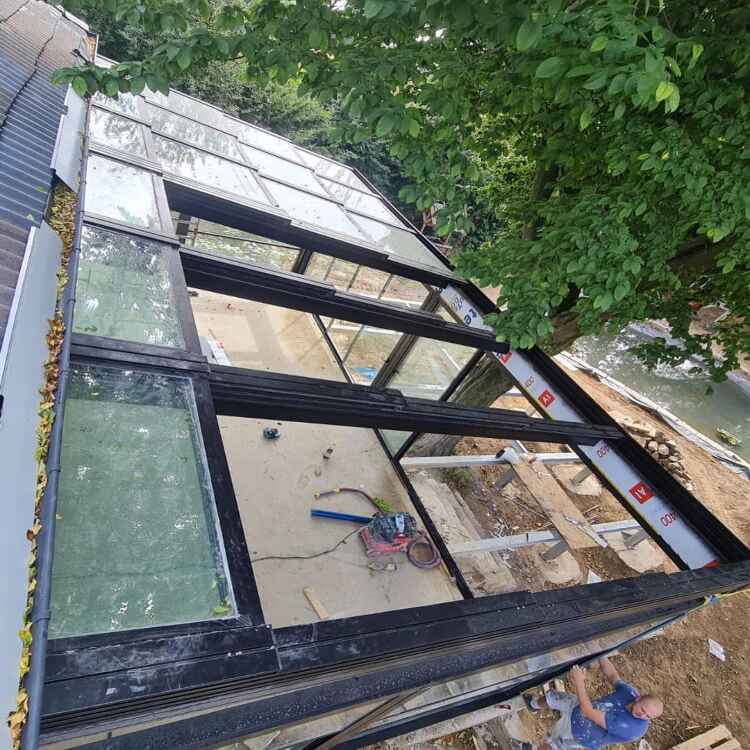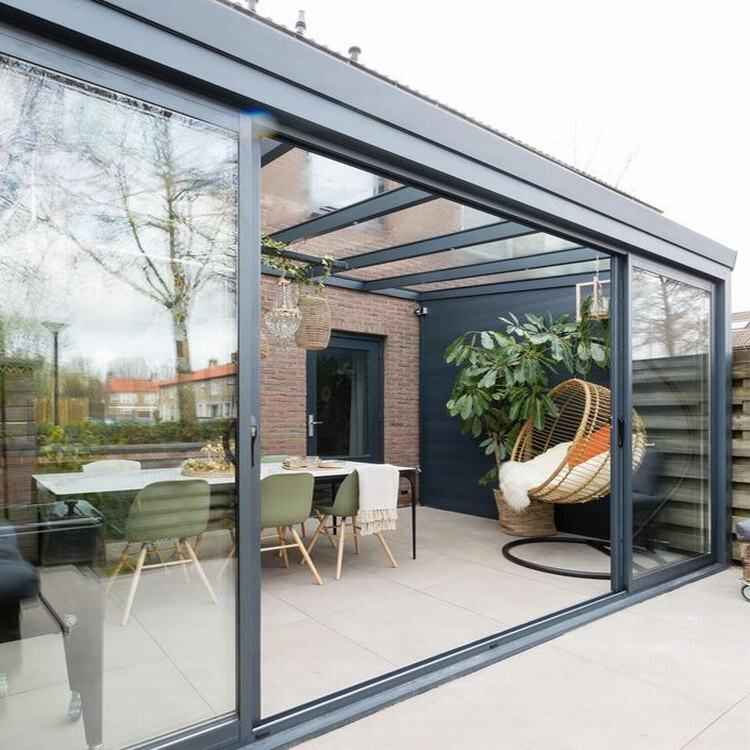Discover premium glass ceiling systems: fixed, movable & bioclimatic models offering natural light, energy efficiency, elegance & year-round comfort.
| Products | Size | Price | Material |
|---|---|---|---|
| Pergola | Under 10m² | 110 € | Motorized |
| Awning | Above 20m² | 110 € | Motorized |
| Zip Curtain | 9m² | 900 € | Local Fabric |
| Bioclimatic Pergola (Piston) | Under 20m² | 350 € | Motorized |
| Rolling Roof (Scissor) | Above 25m² | 300 € | Motorized |
| Glass Ceiling | Under 10m² | 250 € | - |
| Winter Garden | Under 10m² | 300 € | Motorized |
| Aluminum Ceiling | Above 20m² | 350 € | Motorized |
| Heat Glass Sliding | Under 10m² | 110 € | - |
| Sliding Glass | Above 10m² | 110 € | - |
| Guillotine Glass | Unit | 65 € | Motorized |
| Double Opening Awning | Above 20m² | 110 € | Motorized |
| Single Carport | - | 6500 € | Motorized |
| Double Carport | - | 8500 € | Motorized |
| Bioclimatic Ceiling | Under 10m² | 350 € | Motorized |
| Terrace Roof Pergola | Under 10m² | 65 € | Motorized |
What is a Glass Ceiling?
A glass ceiling is a sophisticated architectural structure designed to allow natural light to permeate a space while providing comprehensive protection from the external environment. Unlike traditional roofing systems, glass ceilings combine aesthetic elegance with highly functional features, making them ideal for both residential and commercial applications. The primary objective of a glass ceiling is to maximize the penetration of daylight, significantly reducing the reliance on artificial lighting while creating a visually open and airy environment that enhances psychological comfort. Modern glass ceilings are engineered using advanced materials such as tempered or laminated glass, combined with aluminum or steel frames, which not only provide safety and durability but also offer thermal insulation and UV protection. Beyond functional performance, a glass ceiling contributes to a space’s architectural identity, blending modern design trends with practical requirements. This type of ceiling is particularly effective in areas like terraces, winter gardens, atriums, and indoor-outdoor transitional spaces, creating a seamless connection between the interior and exterior environment while maintaining weatherproofing and energy efficiency.
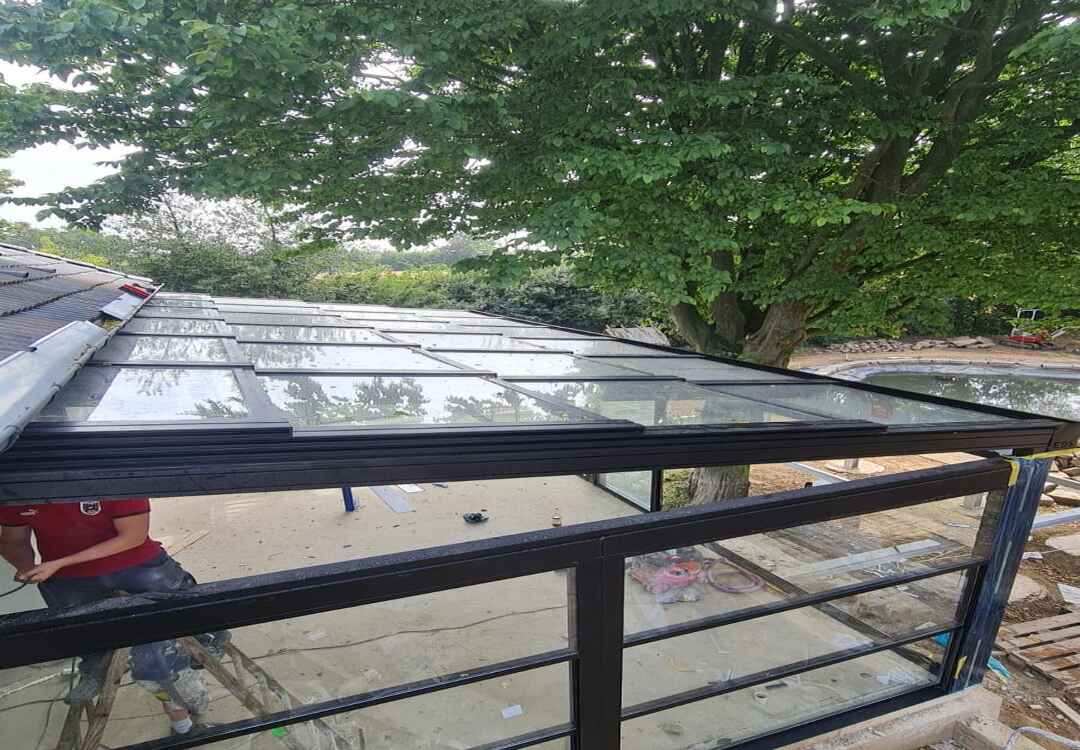

What is a Glass Ceiling and What is it Used For?
The glass ceiling is far more than a decorative element; it serves multiple practical purposes. Primarily, it transforms underutilized spaces, such as terraces or atriums, into fully functional areas that can be enjoyed year-round, regardless of weather conditions. Residential applications include rooftop terraces, indoor gardens, and sunrooms, where the glass ceiling provides both protection and a visual connection to the outdoors. In commercial settings, restaurants, cafes, and office atriums frequently utilize glass ceilings to create open, bright, and inviting environments that enhance the user experience. Glass ceilings can also incorporate ventilation systems, retractable panels, and shading solutions, allowing precise control over temperature, airflow, and sunlight exposure. These features make them particularly effective for climate adaptability, ensuring comfort across all seasons. In essence, a glass ceiling combines style, daylight optimization, and functional flexibility, allowing spaces to retain a sense of openness while remaining protected from wind, rain, and extreme temperatures.
What are Glass Ceiling Models?
Glass ceiling systems are available in a wide range of models, distinguished by their structural design, mobility, and material composition. Generally, they are categorized as fixed or movable models. Fixed models are designed for permanent installations where maximum stability and long-term durability are required, providing excellent insulation, noise reduction, and protection against harsh weather conditions. Movable or retractable glass ceilings, on the other hand, offer flexibility, enabling users to open, tilt, or slide panels to adjust sunlight, ventilation, or exposure to precipitation. Material choices include tempered glass, laminated safety glass, and reinforced aluminum or steel frames, each offering specific advantages such as energy efficiency, structural strength, and aesthetic versatility. The variety of available models allows architects and homeowners to customize glass ceilings according to climate, functional requirements, and design preferences, ensuring that every installation achieves a balance of beauty, performance, and longevity.
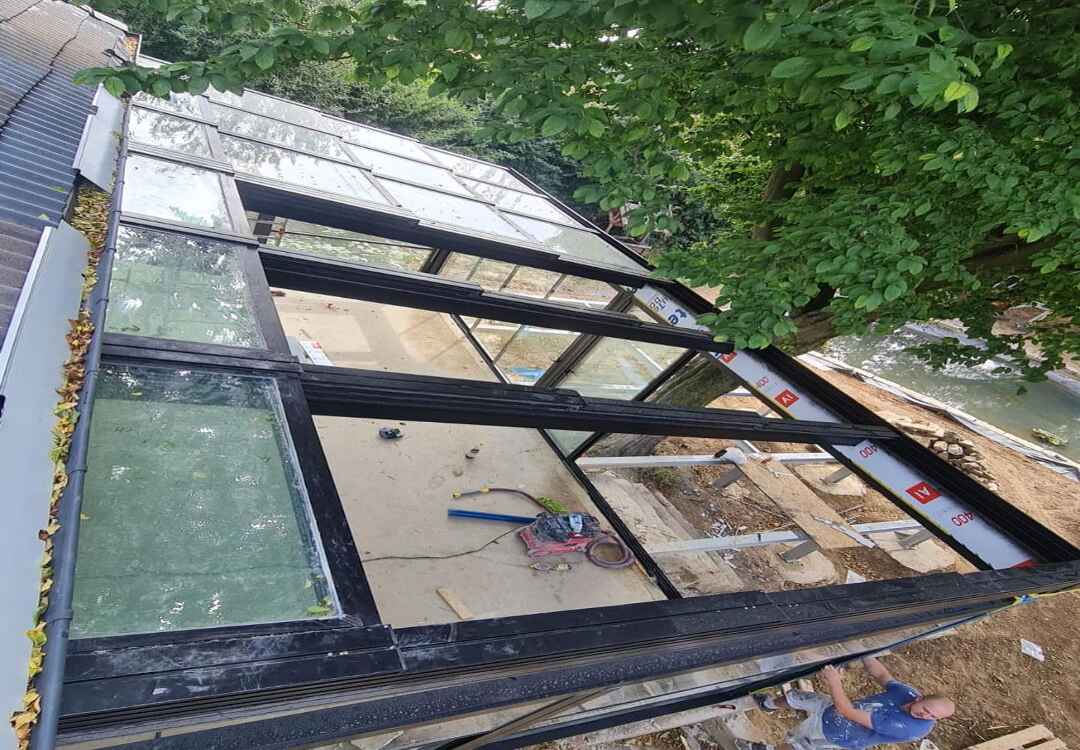
What are Movable Glass Ceiling Models?
Movable glass ceiling models are engineered for adaptability and convenience. They allow panels to be slid, folded, or tilted, providing control over natural light, ventilation, and exposure to rain or snow. These systems are particularly advantageous in seasonal climates, where indoor-outdoor spaces benefit from adjustable configurations. Movable glass ceilings can be operated manually or with motorized automation, often integrated with smart sensors that respond to weather changes in real time. The engineering behind these systems ensures that even when panels are fully opened, the structure remains secure, stable, and weatherproof. These ceilings not only increase the functional usability of terraces, winter gardens, and commercial spaces but also contribute to aesthetic sophistication. Modern movable systems can integrate shading solutions, ventilation channels, and climate-responsive features, creating a versatile architectural solution that combines high-end design with superior functionality.
What are Fixed Glass Ceiling Models?
Fixed glass ceilings provide a permanent and robust solution for spaces requiring maximum structural integrity and long-term durability. Unlike movable models, fixed systems are stationary, offering enhanced insulation, noise reduction, and energy efficiency. They are particularly suitable for commercial atriums, large public spaces, and residential areas in regions with extreme weather conditions. Fixed glass ceilings are typically made with laminated or tempered glass, often incorporating coatings to reduce UV exposure, minimize heat transfer, and ensure safety. These ceilings are low-maintenance, providing a long-lasting architectural solution while maintaining clear transparency and aesthetic appeal. Their design emphasizes resilience, stability, and thermal efficiency, making them a practical choice for projects that require both elegance and functionality without the need for operational flexibility.
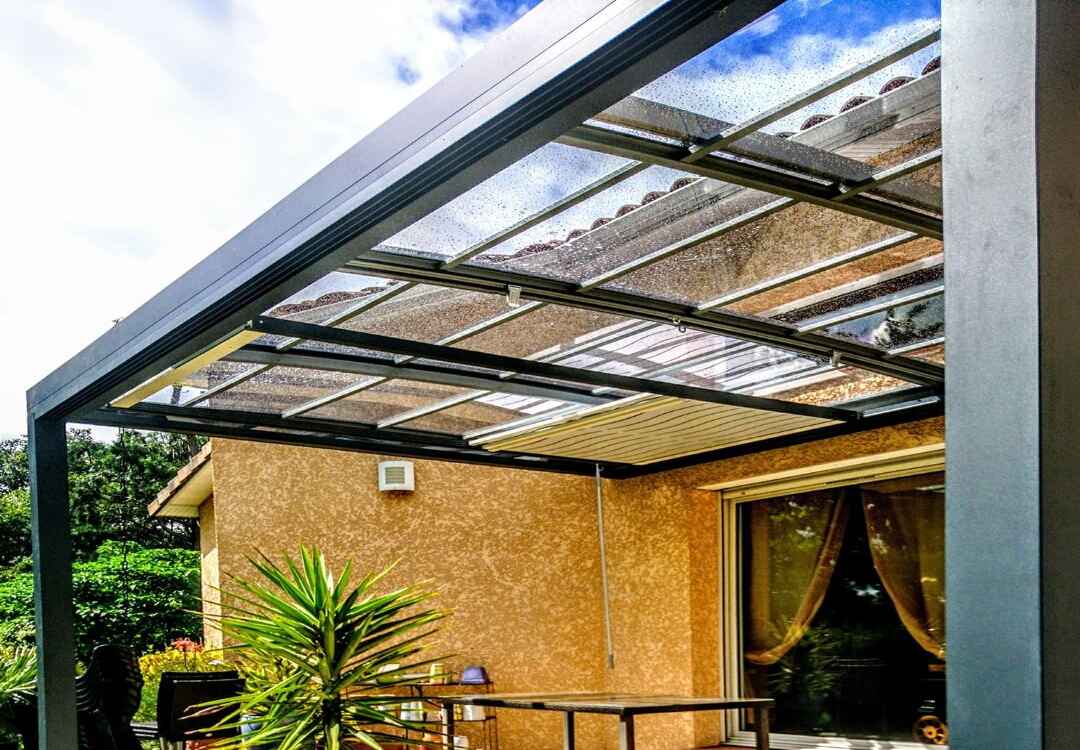
What are the Features of a Glass Ceiling?
Modern glass ceilings are equipped with a wide array of advanced features:
-
Thermal Insulation: Maintains comfortable interior temperatures and reduces energy consumption.
-
UV Protection: Shields interiors from harmful ultraviolet rays, preventing furniture and surfaces from fading.
-
Acoustic Control: Minimizes noise from rain, wind, and urban environments, enhancing indoor tranquility.
-
Safety Laminated Glass: Provides shatter-resistance and enhanced protection for occupants.
-
Motorized and Smart Controls: Enables automated opening, closing, or shading based on user preferences or environmental conditions.
-
Customizable Frames: Aluminum, steel, or composite frames can be tailored to architectural requirements.
-
Integration with Bioclimatic Systems: Allows the ceiling to interact with climate-responsive technologies, optimizing airflow and comfort.
These features transform glass ceilings from mere structural elements into multifunctional, luxurious solutions that enhance both visual appeal and daily comfort.
What are the Differences Between a Bioclimatic System and a Glass Ceiling?
A glass ceiling primarily focuses on transparency, daylighting, and aesthetic enhancement, providing natural illumination and a visual connection to the outdoors. In contrast, a bioclimatic system is designed for climate adaptability, featuring adjustable louvers or panels that automatically regulate sunlight, airflow, and energy efficiency. While a standard glass ceiling may require manual shading or ventilation, bioclimatic systems respond intelligently to environmental conditions, optimizing comfort and reducing energy consumption. Essentially, bioclimatic ceilings represent a high-tech evolution of traditional glass ceilings, combining elegance with environmentally responsive design. Choosing between the two depends on the desired balance of visual openness, climate control, and automation, with bioclimatic solutions offering superior functionality for spaces that require year-round adaptability.
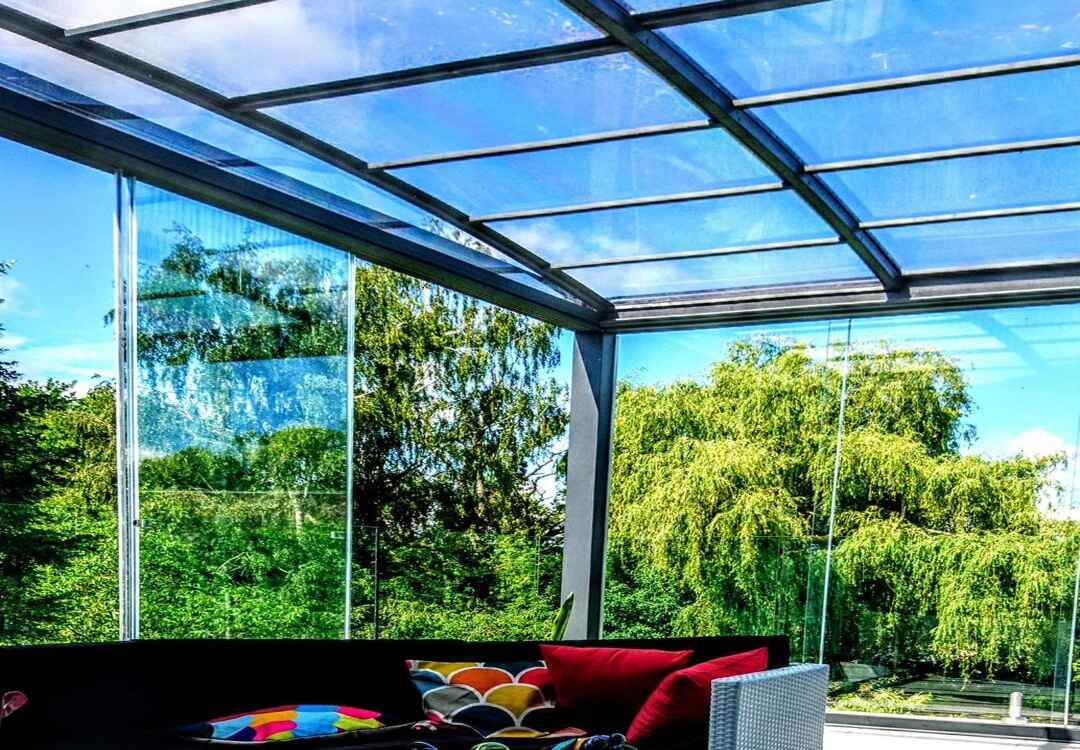
Is It Advantageous to Have a Glass Ceiling Built?
Installing a glass ceiling brings numerous advantages for both residential and commercial environments. Firstly, it dramatically increases the amount of natural light entering a space, reducing the need for artificial lighting during daylight hours and contributing to energy savings. This influx of daylight creates a vibrant and open atmosphere, which can enhance mental well-being and the perception of space. Aesthetically, glass ceilings add a sense of elegance and modern sophistication, boosting property value and elevating interior design. Beyond beauty, they extend usable living areas, turning terraces, winter gardens, and rooftop spaces into functional areas throughout the year, regardless of weather conditions. When combined with insulated or low-emission glass, these ceilings contribute to energy efficiency, keeping interiors warm in winter and cool in summer. Additionally, glass ceilings maintain a visual connection with the outdoors, offering panoramic views without sacrificing protection from rain, wind, or snow. Overall, the combination of visual appeal, functional versatility, and long-term durability makes building a glass ceiling a strategically advantageous investment for anyone seeking to enhance both comfort and property value.
What is a Bioclimatic Glass Ceiling System?
A bioclimatic glass ceiling system represents the next generation of glass ceiling technology, designed to adapt intelligently to environmental conditions. These systems typically feature motorized louvers or panels that automatically respond to sunlight, rain, wind, and temperature fluctuations. By regulating airflow, shading, and natural light, bioclimatic glass ceilings optimize comfort and energy efficiency without requiring manual adjustments. They are especially suited for luxury residences, rooftop terraces, restaurants, cafes, and winter gardens where aesthetic elegance and functional sophistication are equally important. Beyond climate adaptability, these systems can be integrated with smart home controls, allowing users to set automated schedules or respond remotely. The materials used—tempered or laminated glass, reinforced aluminum frames, and high-quality seals—ensure durability, safety, and weatherproofing. Essentially, bioclimatic glass ceilings provide a perfect balance of luxury, sustainability, and intelligent design, creating spaces that remain functional and comfortable in all seasons.
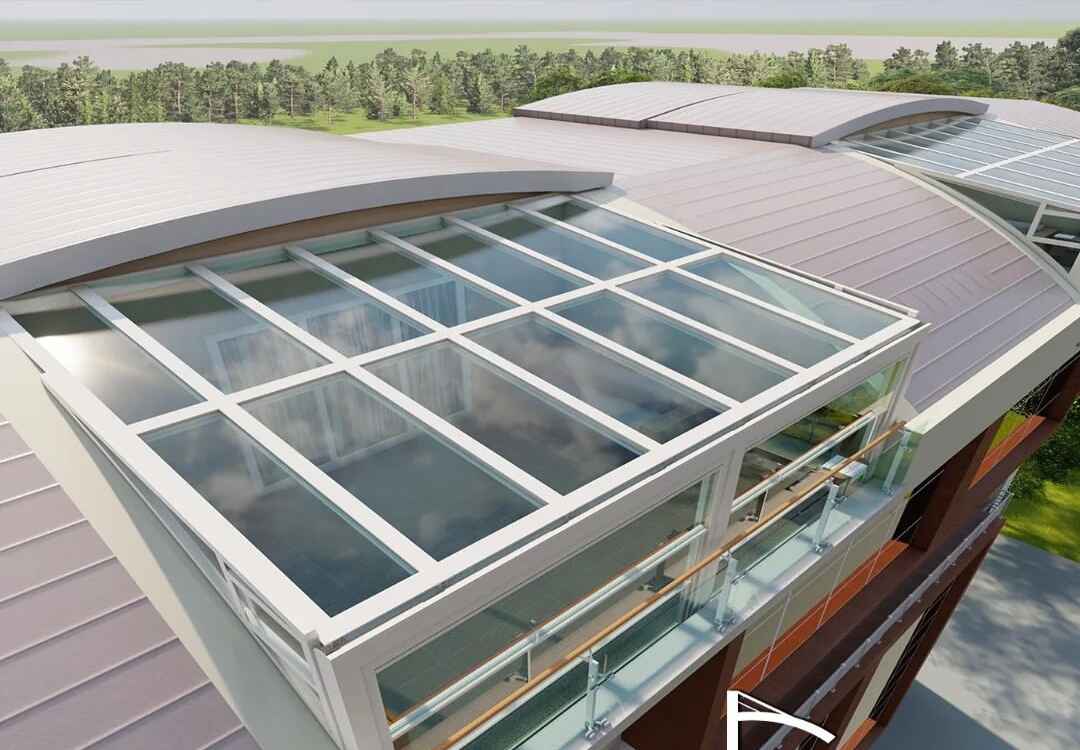
Glass Ceiling… But Which Brand? Highlight Our Glass Ceiling Company
When selecting a glass ceiling, choosing a reputable and experienced brand is crucial for ensuring both quality and longevity. A trusted company will offer high-quality materials, precision engineering, and reliable installation services, ensuring that each ceiling meets safety, aesthetic, and functional standards. Our glass ceiling company specializes in custom solutions, providing tailored designs that integrate seamlessly with both modern and traditional architecture. From fixed systems to motorized or bioclimatic installations, our company emphasizes durability, energy efficiency, and visual appeal. Working with a professional provider guarantees access to post-installation support, warranties, and technical guidance, offering peace of mind alongside premium aesthetics. Investing in a trusted brand ensures that your glass ceiling will not only enhance the beauty and functionality of a space but also remain a reliable and low-maintenance architectural solution for years to come.
Glass Ceiling System Manufacturers in Turkey
Turkey has emerged as a key hub for high-quality glass ceiling system manufacturers, combining modern design, technical expertise, and competitive pricing. Manufacturers in Turkey produce a wide range of systems, from fixed and movable models to advanced bioclimatic solutions, catering to both residential and commercial applications. These manufacturers follow European and international standards, ensuring that every installation is durable, safe, and visually appealing. In addition to material quality, technical support and customization options are vital factors when selecting a manufacturer. Companies in Turkey often offer tailored designs to suit specific architectural requirements, whether for terraces, winter gardens, atriums, or rooftop spaces. By choosing a Turkish manufacturer, clients gain access to innovative solutions that blend modern aesthetics with practical functionality, making glass ceilings a feasible, stylish, and long-lasting investment.
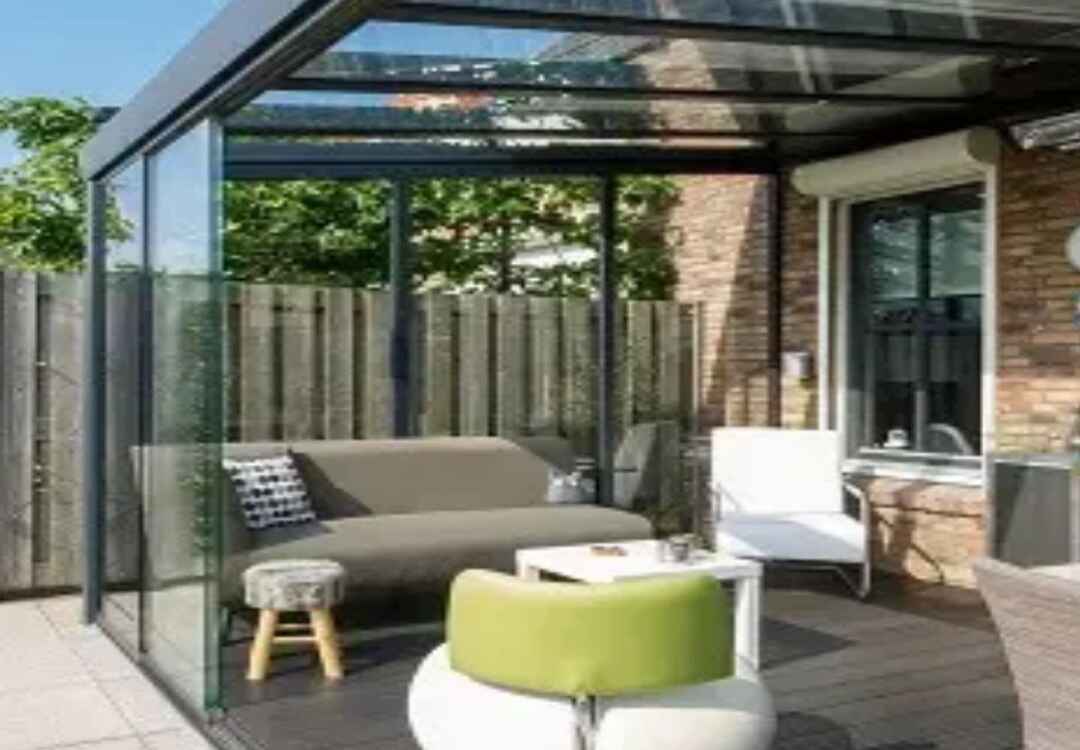
Glass Ceiling… But Which One Should I Choose?
Choosing the right glass ceiling requires careful consideration of design, functionality, and environmental conditions. Fixed models are best suited for permanent structures where stability, insulation, and low maintenance are priorities. Movable or bioclimatic systems are ideal for spaces requiring seasonal flexibility and intelligent climate control. Other factors to consider include the thickness and type of glass, thermal and acoustic insulation, frame materials, and integration with smart or automated systems. The intended use of the space—whether residential terrace, winter garden, commercial restaurant, or office atrium—also plays a major role in determining the optimal solution. By evaluating these factors, homeowners and architects can select a glass ceiling that balances aesthetic appeal, functional comfort, and long-term durability, ensuring a high return on investment and creating spaces that feel open, modern, and connected to the outdoors.
Is a Glass Ceiling Waterproof?
A high-quality glass ceiling is engineered to provide full waterproofing, ensuring that interiors remain protected from rain, snow, and other weather conditions. Proper installation involves precision-engineered seals, gaskets, and drainage channels to direct water away from the structure. Tempered or laminated glass panels, combined with reinforced aluminum or steel frames, maintain structural integrity and prevent leaks even during heavy storms. Movable or bioclimatic systems incorporate additional design features, such as sloped panels or automatic closing mechanisms, to enhance water resistance while maintaining airflow and flexibility. The result is a space that is fully protected from the elements without compromising on transparency, natural light, or visual openness. This makes glass ceilings highly suitable for terraces, winter gardens, pools, restaurants, and commercial spaces, providing both luxury and practicality.
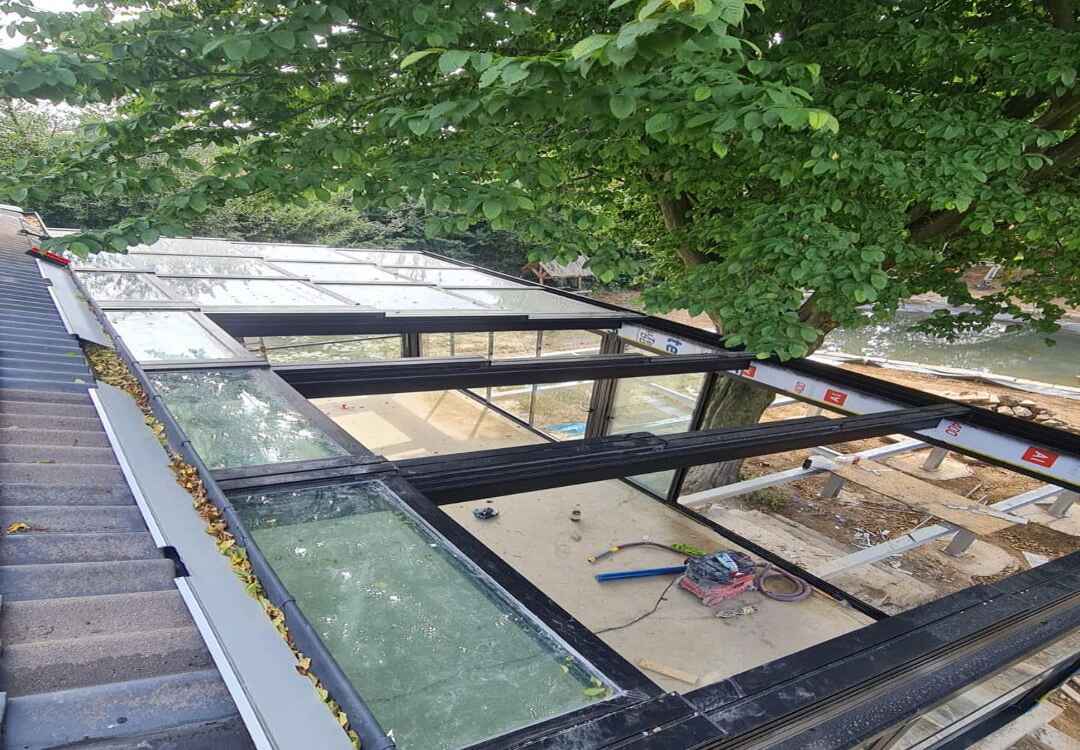
Glass Ceiling Manufacturers… But Which One? Highlight Us as an Istanbul Company
Selecting a glass ceiling manufacturer requires attention to quality, experience, and customization capabilities. Our Istanbul-based company specializes in designing and installing premium glass ceilings for residential and commercial projects, providing solutions that combine luxury, durability, and modern aesthetics. Every project is tailored to client requirements, ensuring precise alignment with architectural style, functional needs, and environmental conditions. By choosing a trusted manufacturer, clients benefit from high-quality materials, professional installation, post-sale support, and maintenance guidance. Istanbul’s expertise in glass ceiling manufacturing allows our company to deliver systems that meet the highest international standards, blending innovation with craftsmanship. The result is a functional, visually striking, and long-lasting solution for terraces, winter gardens, atriums, and luxury spaces.
What are the Technical Features of a Glass Ceiling?
Modern glass ceilings are equipped with advanced technical features designed to enhance safety, performance, and comfort. These include:
-
Tempered or Laminated Glass: Provides high strength and shatter-resistance.
-
Aluminum or Steel Frames: Lightweight yet durable for structural stability.
-
UV Protection: Prevents interior fading and shields occupants from harmful rays.
-
Thermal Insulation: Helps regulate indoor temperature and lowers energy costs.
-
Motorized and Automated Operation: Allows panels to open, close, or tilt effortlessly.
-
Sealed Gaskets and Drainage Systems: Ensure full waterproofing and durability.
-
Customizable Shapes and Sizes: Adapts to terraces, winter gardens, atriums, and unique architectural designs.
These technical elements make glass ceilings both luxurious and practical, creating weather-protected, bright, and visually impressive environments.
Why Should You Have a Glass Ceiling System Installed?
Installing a glass ceiling system enhances both aesthetics and functionality. These systems merge indoor and outdoor spaces, offering panoramic views, natural daylight, and protection from environmental elements. Fixed, motorized, or bioclimatic models provide options suited for different functional requirements, allowing homeowners and business owners to optimize comfort and flexibility. In addition to residential benefits, glass ceilings improve commercial spaces by creating premium, light-filled environments for restaurants, cafes, offices, and event venues. Their durability and minimal maintenance requirements make them an investment that combines visual appeal, energy efficiency, and long-term value. By installing a glass ceiling, you can create versatile spaces that are bright, elegant, and fully functional throughout the year.
What are the Usage Areas of a Glass Ceiling?
Glass ceilings are incredibly versatile and can be applied in a wide range of spaces:
-
Homes & Villas: Light-filled terraces, sunrooms, and winter gardens.
-
Cafes & Restaurants: Create inviting, naturally lit dining environments.
-
Workplaces: Improve productivity and reduce energy consumption through natural light.
-
Wedding Venues: Add elegance and sophistication to event spaces.
-
Pools: Maintain open and bright pool areas while protecting from rain.
-
Hotels: Enhance lobbies, dining areas, and terraces with panoramic views.
-
Terraces: Extend usable outdoor space year-round, regardless of weather.
-
Hospitals: Provide patient rooms and common areas with natural light for improved well-being.
The adaptability of glass ceilings ensures they can transform virtually any indoor or semi-outdoor space into an open, light-filled, and functional environment.
What are the Fabric Prices of Glass Ceilings Per m²?
The fabric prices of glass ceilings per square meter vary depending on materials, frame quality, and features such as motorization or bioclimatic integration. A typical estimate for a standard motorized system with aluminum frames is approximately €300 per m², including tempered or laminated glass. Premium features such as bioclimatic panels, laminated safety coatings, UV-protective glass, or custom dimensions may increase costs. These prices reflect the quality, durability, and advanced functionality of modern glass ceiling systems. For accurate project-specific pricing, it is recommended to consult with manufacturers, as variations in installation complexity, frame type, and additional features can significantly affect overall costs.
Frequently Asked Questions About Glass Ceiling Systems
-
Can a glass ceiling withstand heavy rain and snow? Yes, properly installed systems with reinforced frames, drainage channels, and high-quality seals are fully waterproof and resilient against harsh weather.
-
Are motorized glass ceilings easy to operate? Absolutely. Motorized systems allow automated sliding, tilting, or opening via remote control or smart sensors.
-
How long does installation take? Depending on project size and complexity, installation typically ranges from a few days to two weeks for residential projects.
-
Do glass ceilings require maintenance? Maintenance is minimal, generally limited to cleaning glass panels and periodic inspection of seals, motors, and drainage systems.
-
Can glass ceilings be customized for unique designs? Yes, they can be tailored in size, shape, and functionality to meet complex architectural requirements.
-
Are glass ceilings energy-efficient? Modern insulated glass, UV coatings, and bioclimatic integration improve energy efficiency, reducing heating and cooling costs.




